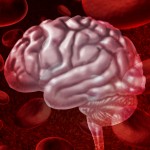Helge Hasselmann



Major depression all too often develops a chronic course, with every episode making future relapse more likely (Gilmer et al., 2005). Dysthymic disorders represent a less severe, but more persistent form of depression lasting for at least two years. In the affective disorder spectrum, chronic forms are unsurprisingly associated with greater functional impairment and overall [read the full story…]

SSRIs are usually considered first-line treatment against major depression and approximately 50% of patients achieve remission with the drug they try first (Steffens, Krishnan, & Helms, 1997). However, every eighth case proves to be treatment-resistant and does not respond to standard antidepressant treatment at all. As a last resort, second-generation antipsychotics (SGAs) effective in schizophreniform [read the full story…]

Depression is a serious mental health threat proclaimed to be the greatest disease burden in the industrialised world by 2020 (Simon, 2003). In the pharmaceutical combat against depression, selective serotonin reuptake inhibitors (SSRIs) are the current treatment of choice. Indeed, SSRIs are the most prescribed antidepressant medicine (Helms & Eric, 2006). As the name suggests, they increase [read the full story…]